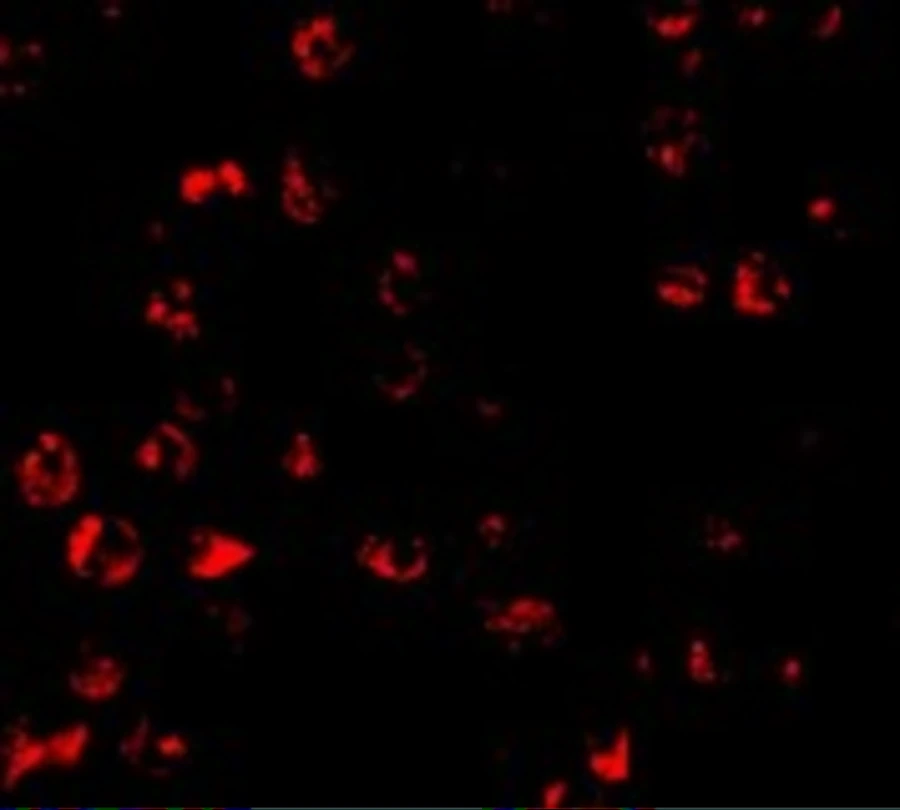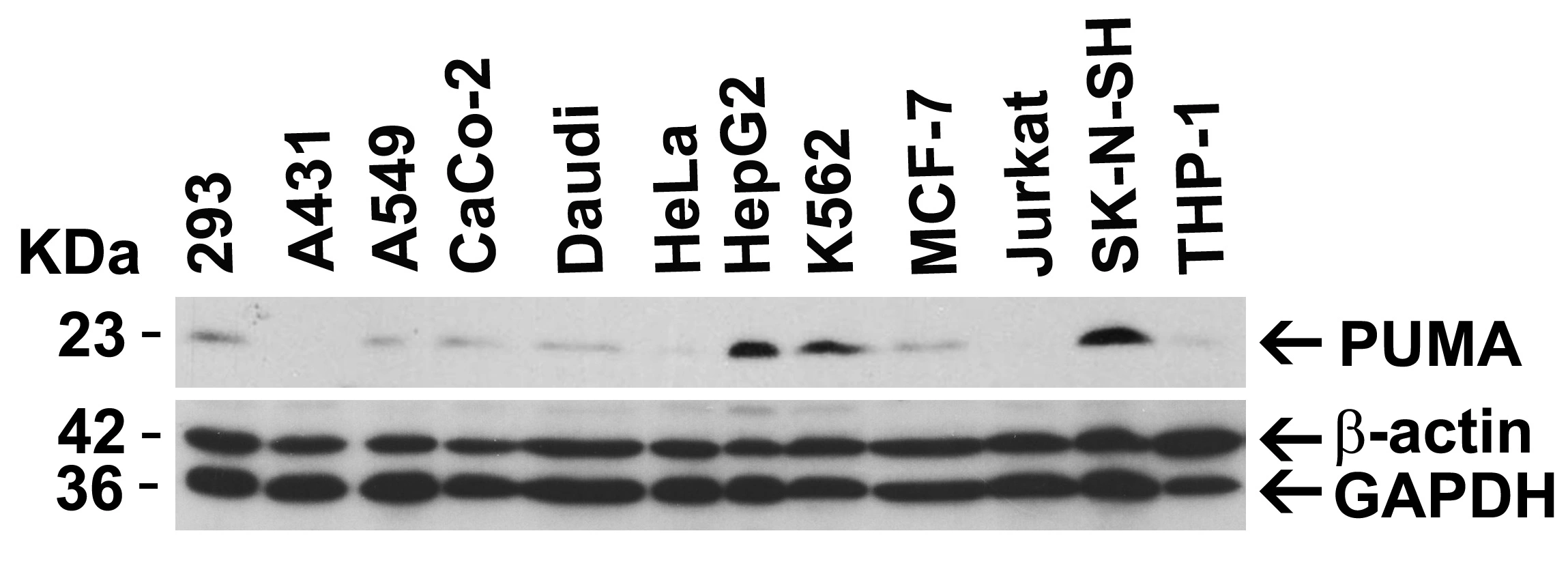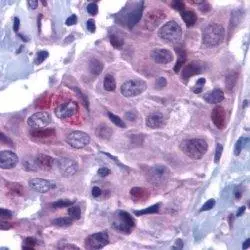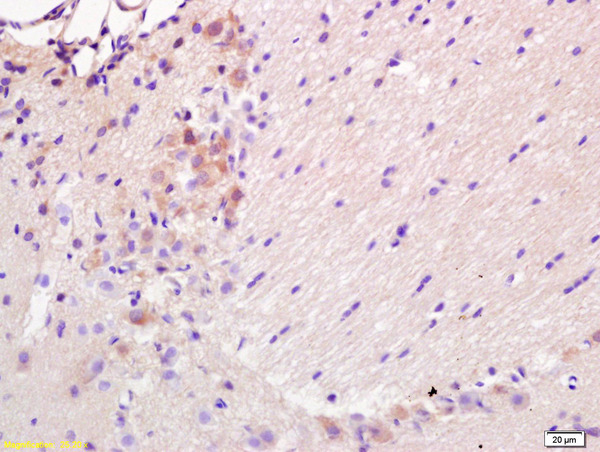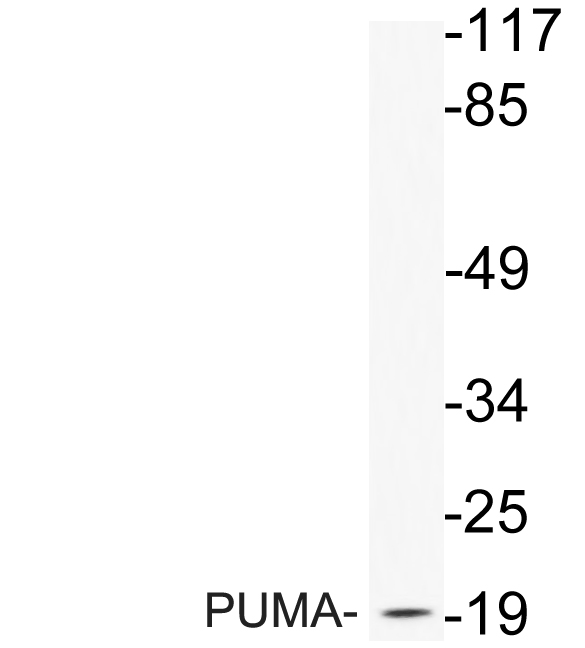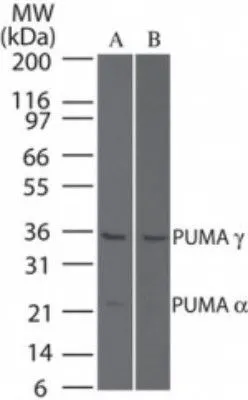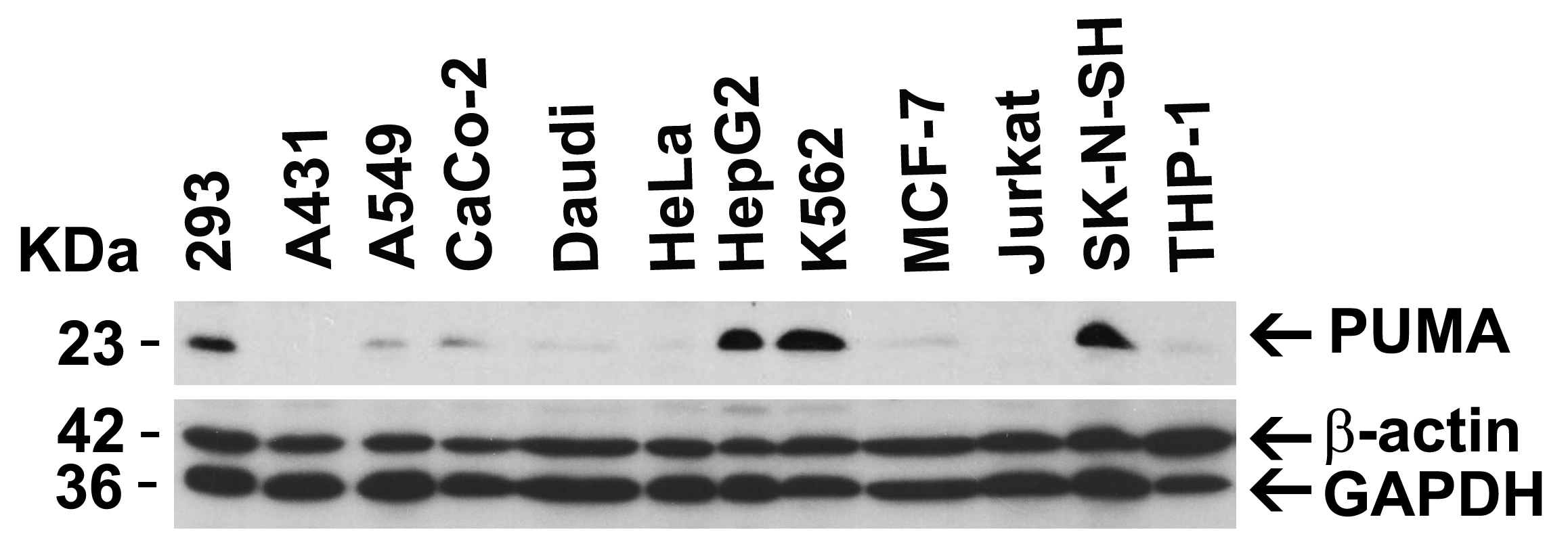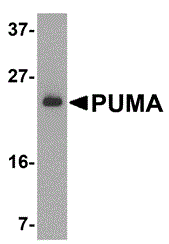
Western blot analysis of whole cell lysate from K562 cells probed with Rabbit anti Human PUMA binding component 3 (GTX29645)
PUMA antibody
GTX29645
ApplicationsImmunoFluorescence, Western Blot, ELISA, ImmunoCytoChemistry, ImmunoHistoChemistry, ImmunoHistoChemistry Paraffin
Product group Antibodies
ReactivityHuman, Rat
TargetBBC3
Overview
- SupplierGeneTex
- Product NamePUMA antibody
- Delivery Days Customer9
- Application Supplier NoteWB: 2microg/ml. *Optimal dilutions/concentrations should be determined by the researcher.Not tested in other applications.
- ApplicationsImmunoFluorescence, Western Blot, ELISA, ImmunoCytoChemistry, ImmunoHistoChemistry, ImmunoHistoChemistry Paraffin
- CertificationResearch Use Only
- ClonalityPolyclonal
- ConjugateUnconjugated
- Gene ID27113
- Target nameBBC3
- Target descriptionBCL2 binding component 3
- Target synonymsJFY-1, JFY1, PUMA, bcl-2-binding component 3, p53 up-regulated modulator of apoptosis, p53-upregulated modulator of apoptosis
- HostRabbit
- IsotypeIgG
- Protein IDQ96PG8
- Protein NameBcl-2-binding component 3, isoforms 3/4
- Scientific DescriptionThis gene encodes a member of the BCL-2 family of proteins. This family member belongs to the BH3-only pro-apoptotic subclass. The protein cooperates with direct activator proteins to induce mitochondrial outer membrane permeabilization and apoptosis. It can bind to anti-apoptotic Bcl-2 family members to induce mitochondrial dysfunction and caspase activation. Because of its pro-apoptotic role, this gene is a potential drug target for cancer therapy and for tissue injury. Alternative splicing results in multiple transcript variants. [provided by RefSeq, Dec 2011]
- ReactivityHuman, Rat
- Storage Instruction-20°C or -80°C,2°C to 8°C
- UNSPSC12352203

